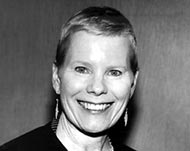Unocal to settle with Myanmar staff
US oil giant Unocal Corp has agreed in principle to settle a lawsuit brought by Myanmar villagers who claim it condoned the use of slave labour during the building of a gas pipeline, Unocal said.

The group accused the California-based company of turning a blind eye to human rights abuses, including murder, rape and forced labour, during the building of the Yadana natural gas pipeline in the 1990s.
“We have reached a settlement in principle to settle the federal lawsuit,” said Unocal spokesman Barry Lane on Sunday. “At the moment, negotiations are ongoing and we have no more specific information.”
It was unknown how much the out-of-court settlement would cost the energy giant, which earlier became the first US company to stand trial in the United States for alleged rights abuses over the pipeline.
Scheduled hearing
The preliminary deal came a day before a scheduled hearing in the federal lawsuit by the full panel of the Ninth Circuit Court of Appeals in Pasadena, California.
“We jointly, with the plaintiffs, postponed the hearing tomorrow (Monday), and the defendants agreed to that,” Lane said.
Fourteen villagers, whose identities have not been revealed, have battled for eight years to hold Unocal responsible for allegedly condoning abuses by the ruling military government in the country formerly known as Burma.
|
“At the moment, negotiations are ongoing and we have no more specific information” Barry Lane, |
The abuses allegedly took place during the construction of the $1.2 billion, 62km conduit that carries natural gas from Myanmar to neighbouring Thailand.
Lawyers for the villagers, who could not be reached for comment late on Sunday, alleged that the company knew or should have known that rights violations would occur during the building of the pipeline in the totalitarian state.
Unocal, which did not directly operate the field owned by the Myanmar government, strongly denies any involvement in any human rights abuses.
Acknowledged
It has acknowledged that Myanmar troops forced villagers to carry ammunition and supplies for the military in the area, but denied that any of that labour involved the Yadana pipeline project.
Unocal owned the pipeline jointly with Total, formerly TotalFinaElf, and the Thai and Myanmar governments. Total is being sued separately in Europe.
The Yadana pipeline is now run by Thailand‘s PTT and Total. The villagers claim that Unocal has a 28.26% stake in the rights to proceeds from the pipeline.
 |
|
Judge Chaney is unwilling to force |
The federal lawsuit against Unocal was filed in Los Angeles in 1996, but was thrown out by a judge. As lawyers for the villagers planned their appeal to the Ninth Circuit, they also pursued their claims in an almost identical suit in a California state court.
In a landmark decision in January, a California state judge in Los Angeles ruled that Unocal could not be held responsible in the state court for the human rights abuses.
Liability
Lawyers for the villagers claimed in that case that Unocal set up “corporate shells” simply to avoid liability for the enslavement of villagers when the pipeline was built.
Unocal used as its defence California‘s “alter-ego doctrine,” which bars plaintiffs from trying to tap a parent corporation if a subsidiary had valuable assets of its own.
But Los Angeles Superior Court Judge Victoria Chaney ruled that the firm could not be held responsible for the conduct of its wholly-owned subsidiaries, which were directly involved in the Yadana project.
She said Unocal followed proper corporate governance in setting up its units involved in the pipeline, but stressed the narrow scope of her decision, saying she was unwilling to force major changes in corporate law.